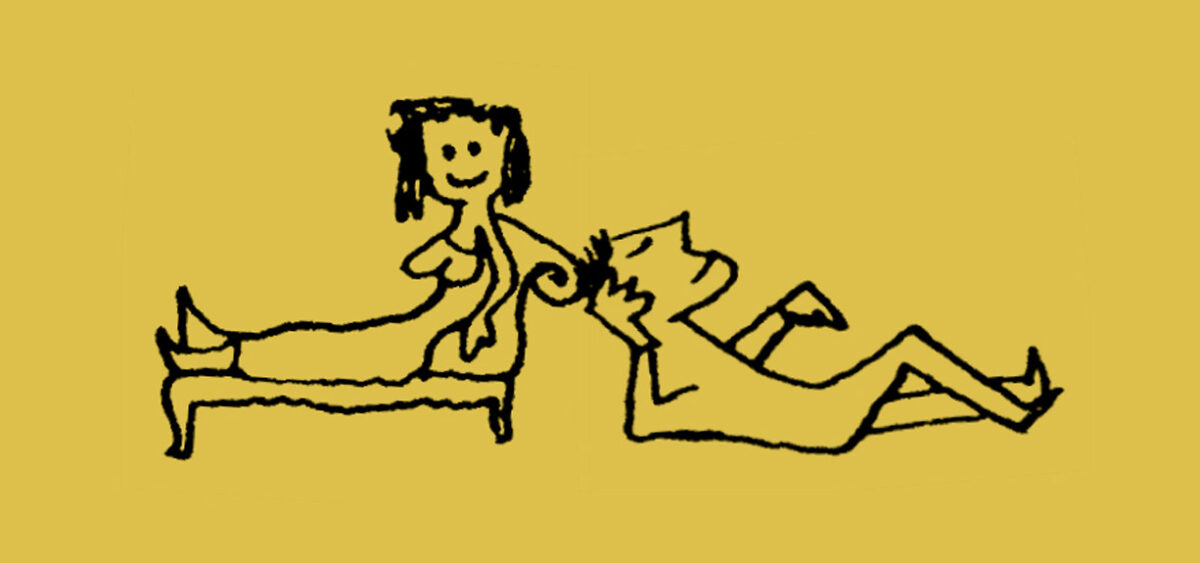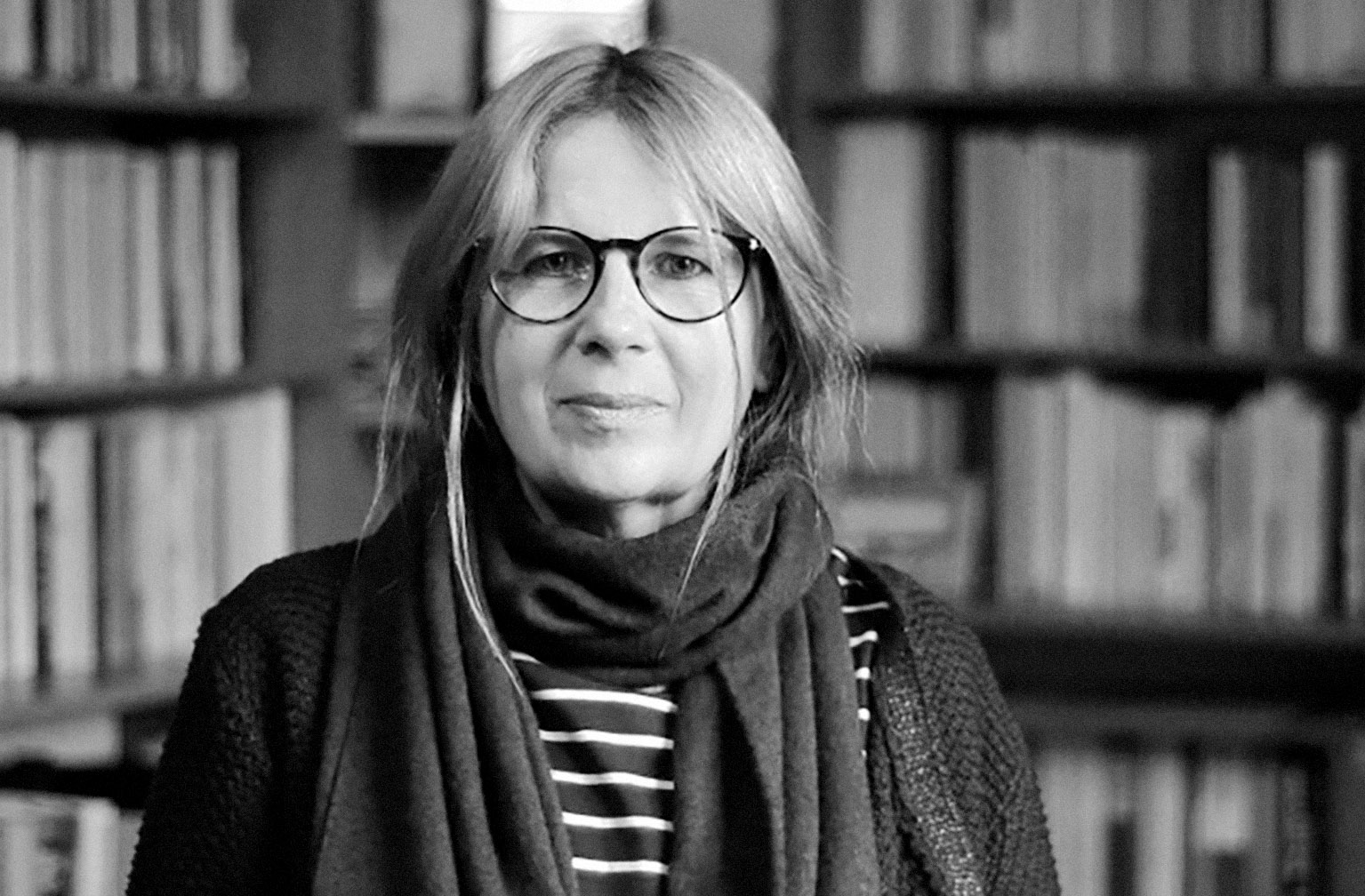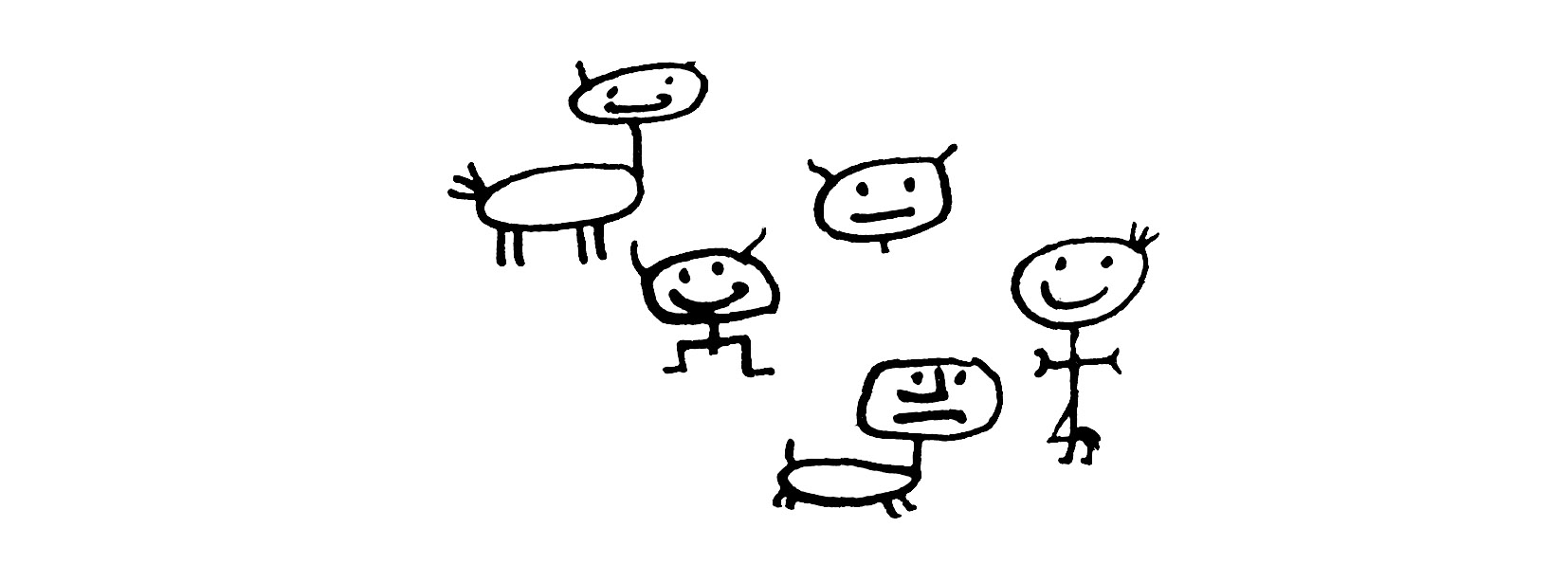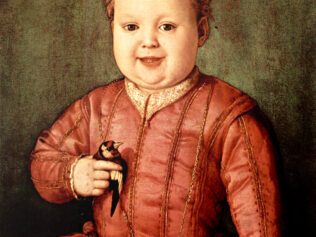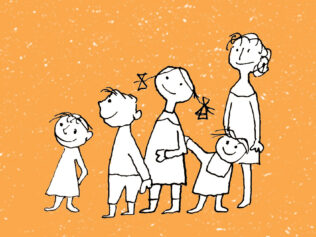
A journalist comes to the therapist. She asks questions and so does he. Together, they seek answers. Ewa Pawlik talks with Shai Orr, the author of the book Miraculous Parenting.
Before Shai Orr became a renowned therapist, whose books are read worldwide, he’d had his ups and downs. He grew up in an Israeli kibbutz, which in his childhood looked nothing like an idyllic, eco-friendly settlement for people tired of city life and eager to be closer to nature. Back then, in a typical kibbutz, children used to be separated from their parents, which means that the traditional family model was practically non-existent. It was replaced by a communal way of life, grounded in Zionist and socialist philosophies. After years, many kibbutz principles were deemed harmful, since they left people, especially children, emotionally wounded. This led to radical changes in how those communities were run.
Shai left the kibbutz as a young man. Before turning 30, he’d led an ordinary life. He’d started a family and become a professional musician and lecturer. But then he faced a major crisis. He fell into depression, which first took his music career away, and then turned his life upside down. The process of recovery was long and painful. When he eventually got better, all that was left from his old life was his marriage. Shai decided to change his career path and became a therapist. In the new life he was building, he wanted to help others and proved good at it.
A growing number of people are suffering from depression, addiction and mental disorders. Some get out of this unscathed; others are unable to recover for long years. There are also those who struggle with depression their entire life. Why do some people get better while others don’t? What internal and external factors enable some of us to not only return to social life, but also contribute to it, doing something good for others?
Shai and I talked online and saw each other on the screen. For obvious reasons, it’s been impossible for us to meet in an olive grove. Shai is in his house in Israel, in a room that seems to be his study. I’m in my Warsaw apartment, in a room that is both a study and (temporarily) a sanatorium: next to me, in bed, is my daughter, who has caught a cold.
Before the interview, we emailed each other a few times. Apart from exchanging pleasantries, we also talked about our troubled childhoods. It turns out that we both count depression on our CVs. When we finally see each other on Zoom, Shai immediately starts asking me lots of questions. No wonder; after all, I’m talking with a therapist.
Shai Orr: Would you say that there’s one particular feature shared by those suffering from severe depression or addiction? Perhaps they have similar experiences when it comes to their relationship with their parents?
Ewa Pawlik: I’d say that it’s the feeling of abandonment. People who deal with such issues usually feel deserted, and it doesn’t matter whether they’ve been physically or emotionally abandoned. It’s also insignificant if adults recognized their feelings as justifiable, or if it was their perspective as a child. We need to remember that children experience things differently than adults. This is, of course, a gross oversimplification, but I’d consider not feeling loved enough to be a major reason. This leaves a hole in one’s heart.
In our society, everyone has such a hole in their heart. What varies is how deep these holes are. In the kind of life that we’ve created for ourselves as a society, making children feel loved is not a priority. But love is what they all deserve…
Actually, these observations aren’t entirely my own, but I fully agree with them. A Hungarian Jew who lives in Canada…
Gabor Maté!
Yes. Have you read his books? I interviewed him for “Przekrój” a few years ago.
Yes, sure. We think very much alike. Trauma is a universal experience of the societies in which we currently have to function.
Yet despite traumas, some people manage to return to society and function within it quite efficiently, in a way that benefits us all. You’re a great example.
Well, yes [laughter]. But I first had to go through depression for this to happen. It took me an entire year. Before that, I had no idea what I really wanted. When I came to understand that, I needed to bid farewell to the man I used to be.
The averagely talented musician and mediocre lecturer, right? I’m not trying to offend you, of course. This is how you describe yourself in your book. Still, you were quite successful.
We first need to take a step back and look at some concepts we’re using in this conversation, for instance, ‘success’. What is it, actually? What does it mean, more specifically, to be successful? You might be a success, and still feel like it doesn’t matter to you. You might become famous, take the glory, get rich, whatever. You might be a real man of success, which will be precisely your biggest problem. When all goes well, at least on the surface level, we’re less likely to confront our inner truth. I always say that the best thing that can happen to us is failure!
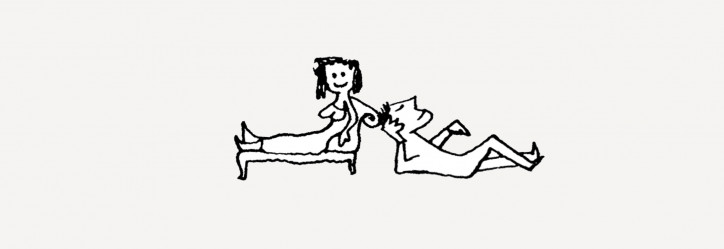
I can’t imagine seeing such a slogan in my daughter’s school, or at any workplace. Society wouldn’t accept it; it simply can’t.
It sure wouldn’t! The thing is that I consider society to be an illusion, which is what I discuss in my book. Those who created this illusion and benefit from it are invested in keeping it alive. But this is only a great illusion. Society, with its political leaders, gurus, coaches and teachers, is nothing but an attempt on the part of adults to heal the wounds inflicted on them when they were kids. This way they can compensate for their traumas without having to
confront what hurts and torments them inside. So when you say ‘society’, I think about the system created so that our inner truth can be repressed – so that we can escape it.
You say ‘system’, and I think ‘education’.
And you’re right. The educational system in both of our countries – and in most countries in the world, actually – is a process of unlearning how to be attuned to one’s judgements, emotions and intuitions. Sadly, this system is effective.
Numbers and standardization.
Numbers, grades, and a blatant disregard for feelings – only clearly set boundaries with no room for emotions. Parents make children do what they were made to do 30 years earlier. Children believe that this is how it should be, which is understandable, since everyone around them says so.
Everyone graduates at some point.
Well, yes, but after 12 years, not three weeks. And even if you’re the best, most affectionate mother, after this time the child you sent there won’t be the same person. There isn’t the slightest chance.
But not everyone can send their kids to a private school!
That’s obvious, but we have to remember that schooling is only an initial stage of becoming part of society, which is broken at its core. You can’t escape it. Children are able to do what they really enjoy only after classes; adults after working hours. This is how it’s organized. The question is whether it has to be that way.
Don’t ask me. You’re the one being interviewed here.
I was brought up in a kibbutz. When the State of Israel was being established, this institution played a major role in shaping the society. The idea was to create a place where Jews could live and grow independent and strong. No-one questioned the founding principles of the kibbutz. It began to change in the 1990s, when people started to notice the dark sides of this institution. Those old kibbutzim were driven by cruelty. Children were only three weeks old when they were being separated from their mothers. For many years, inhabitants of kibbutzim slept in shared bedrooms, separate for children and adults. When I was a kid and got sick, it was not my mother but some strangers who took turns every few hours to nurse me. Today, there are around 200 kibbutzim, the majority of which are private. These places are inhabited by whole families. You can see blooming gardens and children running on the grass. It’s an idyll that many people dream of, devoid of cruelty. But for many years, cruelty was at the core of the kibbutz.
It’s hard for me to listen to this. I feel like holding my daughter right now.
This is a healthy response. My parents were raised in a kibbutz, too, and believed in those ideas. My mother was convinced that she was doing the right thing. But what did she do when she was missing her own child? What did she do about those feelings? She could have repressed them, but they must have been there. This is something natural: she did to me what had been done to her. And we do it today, too, when we send our children to school.
A child returns home from school, though. These situations are different.
That’s true. Those old kibbutzim were more like sects, characterized by strict control and ruthlessness. Children had no opportunity to learn that there were various family models and that their own family was different from others. This kind of ruthlessness was legitimized, since all adults within the system behaved in a similar way and played by the same rules. There was simply nothing and nobody to turn to. Raised in such a world, children decided that what they saw around them was the norm, and they were surrounded by adults who never took responsibility for their children’s needs, which is what parents in a typical, well-functioning family do. Parents in kibbutzim wanted to raise independent and, most importantly, strong individuals, which is why they failed to instill in them a sense of responsibility for the vulnerable ones. They didn’t teach them empathy.
The first kibbutzim were inhabited by young people, who were often childless. They were also separated from their own families, which stayed in different countries – at least that’s how it was before the war.
That’s right. In addition, kibbutzim were invented by men, who were also the majority there. Doubtlessly, the institution of the kibbutz grows out of patriarchal thinking.
That’s a bold observation! I’m wondering how people in Israel respond to your views?
I thought about it a lot before my book came out. The first edition was published in 2013. By then, I’d already worked with thousands of patients and in my social bubble most people accepted my vision of the world. It wasn’t a big bubble, though. I was on the peripheries. Some parents would recommend me to other parents, but it was a rather specific environment, probably similar to yours.
Have you ever considered emigration? Your views might seem controversial.
Not really [laughter]. But I also didn’t expect government organizations to ask me to run workshops for their employees. Nowadays, aid organizations, high-tech companies and schools reach out to me. I’m no longer on the peripheries. My views haven’t changed, but society has. When before the pandemic I was on a train, coming back from vacation in Greece, a ticket controller recognized me: “Shai Orr? I read your book!” she said. Can you imagine this? Never in my wildest dreams did I expect that. Or that you, a journalist from a Polish magazine, would contact me. How did that happen? I’m asking as an ex-outsider [laughter]! A man of success!
Your book came out in Poland, and here, at “Przekrój,” we keep tabs on what’s going on in the publishing market. We’ve been interested in education and parenting for a long time – we interviewed Gabor Maté before even The Guardian published a piece about him.
Wonderful! I’m very glad, but still amazed.
Great, but you keep avoiding the question I asked you at the beginning.
That’s true…
I’ll ask again, then. What helped you overcome the crisis and change yourself so profoundly?
I’ve never asked myself this question. Never! It’s a tough one.
Thank you. So?
Therapy helped me, and so did my family and friends, of course. But I had all that before I fell into depression. So, there might be something more to it.
Let’s keep searching for an answer then.
Ever since I can remember, I’ve had a feeling that I have something good to offer. I remember that when I was leaving the kibbutz, I got 400 shekels and a blanket as a farewell gift. This money wasn’t even enough to cover monthly rent. I was deeply worried, since we’d been repeatedly told that we wouldn’t make it outside the kibbutz. And indeed, the beginnings were tough. I took various jobs. I borrowed a lawnmower from a friend and worked as a gardener, the one that comes to work by bus! With a mower [laughter]! This definitely wasn’t the best time of my life. I dreamed about being a musician, which at the time seemed beyond reach.
I never stopped believing, though, that I had something to offer, not even for a second. I wasn’t planning on saving the world, not at all. I also didn’t really know what it was in particular that I had to offer, but perhaps that was the clue. Even though I didn’t have a clear idea what it was, I kept believing that it was something valuable, something good – this was true when I was a lousy gardener and musician, and it is still true now while I’m talking with you.
This reminds me of how after various tribulations, at 30 I was working for a while as a waitress. This job is usually done by students. One day, the barman, who was younger than me, said: “If I were to work as a waiter at your age, I would rather die!” I didn’t respond to that, but I thought: “What a ridiculous remark! I’m not a waitress, this isn’t something that defines me. This is my job at the moment. There will be other jobs.” Right now, while interviewing you, I also don’t identify solely as a journalist. Our job doesn’t define us; it’s not enough!
Exactly! The process of upbringing should encourage a child’s uniqueness, by which I don’t mean something that leads to fame or unbelievable success. When one dreams about popularity, they dream about getting something from others, feeding on something. But what really matters is our ability to give. Everyone has something unique to offer. If you look at a child carefully – if you learn to actually listen to him or her – you will see it. Children who feel appreciated, valued, and loved will overcome any obstacle.
This is what I wish us and all the children of the world. Thank you for this conversation!
Wait, what’s your daughter’s name?
(This question was followed by many others, but that part of the conversation is subject to therapist confidentiality.)
Shai Orr:
A therapist, inventor of the Miraculous Parenting approach. He organizes workshops and inspires others. His books have changed the approach to parenting in Israel; now, he’s winning the hearts of parents across the world.
Translated from the Polish by Joanna Mąkowska


